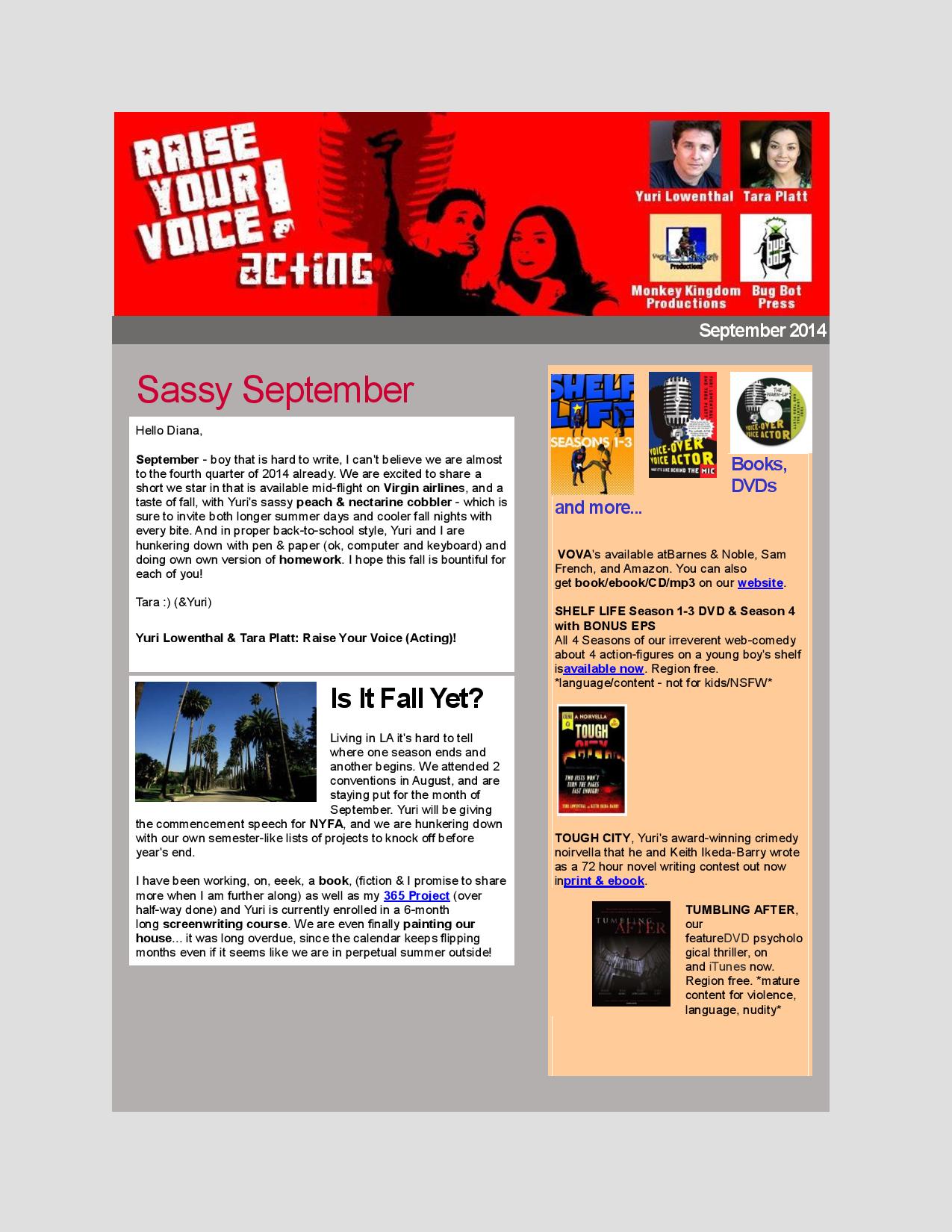Voice Over Networking
 Many people snidely call this schmooooozing, but the truth is, meeting people and developing relationships is how things get done in the entertainment business. Practicing good solid networking skills can help you move forward quickly and consciously toward the next level of your career.
Many people snidely call this schmooooozing, but the truth is, meeting people and developing relationships is how things get done in the entertainment business. Practicing good solid networking skills can help you move forward quickly and consciously toward the next level of your career.
Networking facilitates your being in the right place at the right time. This is part of the preparation + opportunity (right place at the right time) = success equation. Prepare yourself, and then put yourself in situations where you can mingle and meet people. Sometimes you can target the people you want to work with. But honestly, you never know where a job or an important friendship is going to come from. So don’t limit your interactions.
How do you go about schmoozing? Well, first off, let’s stop calling it that. Let’s opt for networking. The word schmoozing has always carried a negative connotation to us because it implies that you’re forcing yourself onto other people for the sole purpose of getting something from them; and that’s just kind of slimy. That’s probably why a lot of actors have trouble networking – because when it’s called schmoozing, they feel like they’re doing something gross. The less pressure you put on meeting people, the easier it’s going to be, and the better it’ll probably work out.
Where do you go to network? There are a variety of places to go and ways to make connections happen. Search for networking events and social gatherings specifically geared toward voice-over and voice acting or to entertainment in general. These events are often listed in entertainment trade papers and on Web sites, and will certainly be more plentiful in big cities like New York and Los Angeles.
Don’t look just for parties (which are sometimes hard to get into). Find out where the people that you would like to work with hang out, and go there. Get yourself in the same circles they’re in and see what happens. You don’t have to be in a big city to make this work. You can go out with friends who are also working in the business, and meet the people they know. If you don’t know anyone else who’s interested in voice acting or in what you want to be doing, then find them.
Put an ad in a local paper or post it on an online site, somewhere like craigslist, MeeptUp, or Facebook. Set up a gathering for people interested in the same things you’re interested in. Build a support group, if you will. Things happen much faster (and it’s usually more fun) if you’ve got a whole group working at it. Who knows, the group you assemble might end up producing a cartoon together.
If you network well, and don’t put pressure on a specific outcome, it won’t be perceived as schmoozy. Still it’s not always the easiest thing for some people to do. Networking might not come naturally for you, so pay attention to people who are good at it and learn from them. In the end, being yourself is the best thing you can do when you meet and socialize with people professionally. You don’t need to try to act cool so they’ll like you. Remember you have as much to offer them as they have to offer you.
Networking should never be about what you can get from others. Treat them as you would your friends, and be friendly and personable. You just may be someone they will want to befriend and (who knows?) maybe work with one day.
And don’t forget your cards! A networking event is a perfect opportunity to get your business cards into people’s hands. Think of this as sowing seeds.
You may have to plant a few seeds before anything starts growing. You never know which seed will grow and bear fruit, so sprinkle those seeds liberally. The more seeds – um, business cards – you hand out, the better your chances are. And if other people give you their cards, be sure to follow up and let them know that you enjoyed meeting them. Then file the cards away somewhere that you’ll be able to find them again, just in case you want to get in touch. You can use your new postcards to follow up with those new contacts you made while networking.
Enjoy it!
+++++++++++++++++++++++++++++++++++++++++++++++++++++++++++++++++++

Check out our VoiceOverVoiceActor website for more tips and exercises. We post daily VO tips on Facebook and Twitter, and our book, Voice Over Voice Actor: What it’s like behind the mic includes a wealth of exercises to build your voice and keep it ready for a successful voice over career!
 Other great voiceover artists can be a source of inspiration!
Other great voiceover artists can be a source of inspiration! 











